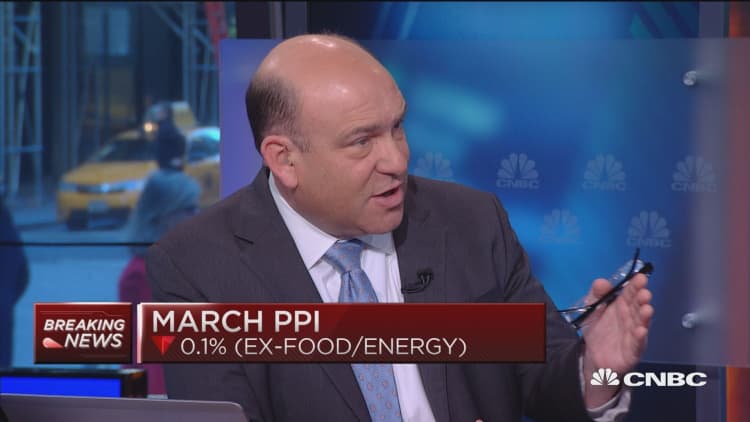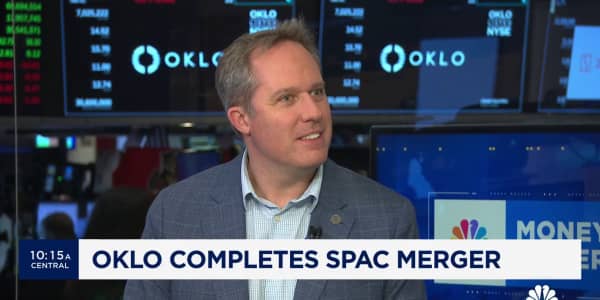
Consumers have been the missing link in the U.S. economic recovery and are likely to remain so absent a major change in sentiment.
Despite the seemingly endless stream of Wall Street economists who believe the U.S. is about to snap out of its malaise, most Americans think the economy is bad and getting worse, according to several recent surveys.
One of the more glaring examples of how strong pessimism has become is Gallup's U.S. Economic Confidence Index. The measure gauges the difference between respondents who say the economy is improving or declining. The most recent results are not good.
Fully 59 percent say the economy is "getting worse" against just 37 percent who say it is "getting better." That gap of 22 percentage points is the worst since August, according to Gallup, which polled 3,542 adults. The index carries a sampling error of plus or minus 2 percentage points.
Those numbers come amid a moribund retail sales climate, with March showing a 0.3 percent decline, worse than even the modest 0.1 percent uptick the Street had been expecting. Consumer prices showed only modest 0.1 percent gains across the board, while producer prices were down 0.1 percent.
Gross domestic product likely grew little if at all in the first quarter, with the Atlanta Fed's latest forecast anticipating a 0.3 percent increase.
Still, many on Wall Street continue to tout the consumer's pivotal role as the driver of future growth. JPMorgan Chase CEO Jamie Dimon, on an earnings call Wednesday, said consumer activity was a key component in the nation's largest bank's ability to beat Wall Street earnings expectations in the first quarter, even though the company's annual profit fell 6.7 percent.
Those waiting for consumers to step up to the plate, however, had better be patient.
"There's a lot of the country that hasn't participated in the substantial improvements that have occurred elsewhere," Mark Hamrick, senior economic analyst at Bankrate.com, said in an interview. "The income inequality is among the biggest challenges not only for the economy but also the democracy."
Hamrick sees the rise of populist presidential candidates Donald Trump and Bernie Sanders as direct outgrowths of Americans' frustrations with the pace of economic growth as well as its distribution.
Trump has stoked his support base by maintaining that the U.S. is losing out to China and Mexico because of unfair trade deals negotiated by weak leaders. Likewise, Sanders has bemoaned the trade deals while promising to break up big Wall Street banks and provide free college and an even broader expansion of public health care to bridge the wealth gap.
"There's a clear feeling through the campaign that helps explain what the data don't tell us," Hamrick said. People have "a frustration with the lack of underlying momentum and vitality" in the economy.
Indeed, other indicators besides the Gallup survey tell the same story.
A gauge called the Money Anxiety Index, which measures uncertainty and financial anxiety through a variety of economic indicators, is at its highest level since September. Also, the Real Clear Politics average of attitudes on the economy shows 66.1 percent of Americans believe the country is on the wrong track.







